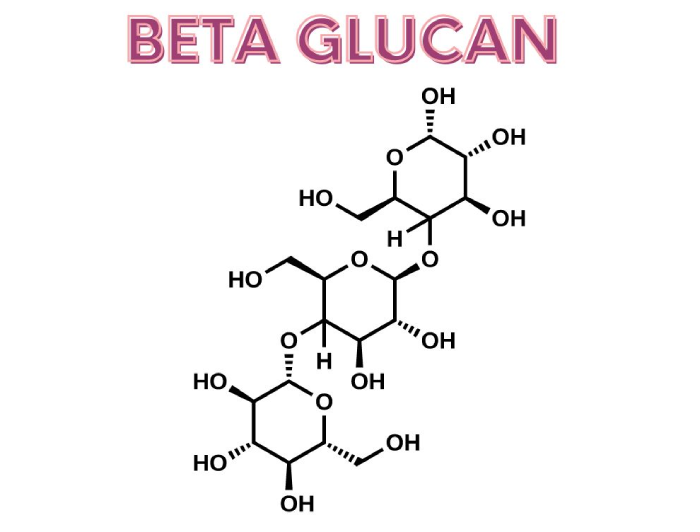Study Reveals FCH’s Potential in Combating Fatigue and Improving Gut Health
A recent study has shed light on the anti-fatigue properties of lactic acid bacteria-fermented corn protein hydrolysate (FCH), offering new insights into its potential as a supplement for improving endurance and overall health. The research, conducted on mice, explored the effects of FCH on various physiological and biochemical markers related to fatigue, as well as its impact on the gut microbiome.
The experiment involved creating a fatigue model in mice through endurance exercises. Researchers then administered FCH to the test subjects and evaluated its anti-fatigue effects by measuring various indicators in the mice’s serum, liver, and skeletal muscle. Additionally, they analyzed the diversity of intestinal microbiota to explore the relationship between FCH, gut flora, and fatigue.
The results were remarkably promising. Mice in the high-dose FCH (FCH-H) group demonstrated significant improvements in endurance. Their weight-bearing swimming time increased by an impressive 1.96 times, while their running time was extended by 2.63 times compared to the control group.
Moreover, the study revealed that FCH had a positive impact on several key physiological markers. Blood lactic acid levels, often associated with muscle fatigue, were reduced by 16.00%. Lactate dehydrogenase activity and urea nitrogen contents, both indicators of muscle damage and protein breakdown, returned to near-normal levels in the FCH-treated mice.
The antioxidant status of the mice also improved significantly. Malondialdehyde, a marker of oxidative stress, decreased by 31.24%. Conversely, the activity of superoxide dismutase, an important antioxidant enzyme, increased by 1.84 times, while glutathione levels, another crucial antioxidant, rose by 1.72 times.
Perhaps one of the most striking findings was the effect of FCH on glycogen stores. Muscle glycogen increased by 1.81 times, while liver glycogen saw a remarkable 5.81-fold increase. These improvements in glycogen levels are particularly noteworthy, as glycogen serves as a primary energy source during prolonged physical activity.
The study also delved into the effects of FCH on the gut microbiome. Analysis of intestinal microbial diversity revealed that Lactobacillus had the highest relative abundance among the bacteria present. Interestingly, the FCH group showed a recovery and even an increase in Lactobacillus abundance. This finding is significant, as Lactobacillus was found to be positively correlated with muscle glycogen levels and superoxide dismutase activity.
In conclusion, the research suggests that FCH can alleviate fatigue by modulating fatigue-related indicators and enhancing the intestinal microbial flora. These findings open up exciting possibilities for the development of new anti-fatigue supplements and strategies to improve endurance and overall health.
Commentary by SuppBase columnist Alice Winters:

This groundbreaking study on lactic acid bacteria-fermented corn protein hydrolysate (FCH) presents a fascinating glimpse into the future of anti-fatigue supplements. As a nutrition expert, I find the multifaceted approach of this research particularly compelling, addressing not only physical endurance but also the intricate relationship between gut health and fatigue.
The significant improvements in endurance metrics – nearly doubling swimming time and more than doubling running time – are nothing short of remarkable. These results suggest that FCH could be a game-changer for athletes and fitness enthusiasts seeking to push their limits.
What’s particularly intriguing is the holistic impact of FCH on the body’s biochemistry. The reduction in blood lactic acid, often blamed for the burning sensation in muscles during intense exercise, indicates that FCH might help delay the onset of fatigue. The normalization of lactate dehydrogenase and urea nitrogen levels further suggests that FCH may aid in reducing muscle damage and improving recovery.
The antioxidant effects of FCH are equally impressive. By boosting superoxide dismutase activity and glutathione levels while reducing malondialdehyde, FCH appears to enhance the body’s defense against oxidative stress – a key factor in exercise-induced fatigue and long-term health.
Perhaps the most exciting aspect of this study is the link between FCH, gut microbiota, and fatigue. The positive correlation between Lactobacillus abundance, muscle glycogen, and superoxide dismutase activity hints at a potential mechanism for FCH’s anti-fatigue effects. This aligns with the growing body of research on the gut-muscle axis and opens up new avenues for targeted probiotic interventions in sports nutrition.
However, it’s crucial to approach these findings with cautious optimism. While the results are promising, this study was conducted on mice, and human trials are needed to confirm these effects in people. Additionally, questions remain about the optimal dosage, long-term effects, and potential interactions with other supplements or medications.
From a market perspective, FCH has the potential to disrupt the crowded field of pre-workout and endurance supplements. Its natural origin and potential gut health benefits could appeal to consumers seeking cleaner, more holistic products. However, manufacturers will need to address challenges in taste, stability, and bioavailability to create successful commercial products.
In conclusion, this study on FCH opens up exciting possibilities in the realm of anti-fatigue supplements. By addressing multiple aspects of fatigue – from energy metabolism to oxidative stress and gut health – FCH represents a promising holistic approach to enhancing endurance and recovery. As research progresses, we may soon see FCH-based products making their way into the supplement regimens of athletes and health-conscious consumers alike. However, as with any emerging supplement, consumers should await further research and consult with healthcare professionals before incorporating FCH into their routines.



